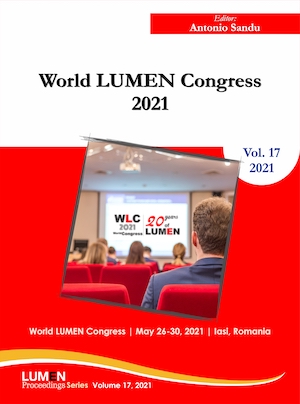Barriers to Distance Learning: Perceptions Of Secondary School Teachers and Students in Serbia
Barriers to Distance Learning: Perceptions Of Secondary School Teachers and Students in Serbia
Author(s): Dragana Dimitrijević, Marija Jovanović
Subject(s): Social Sciences, Education, School education, Distance learning / e-learning
Published by: Editura Lumen, Asociatia Lumen
Keywords: secondary school students;teachers;barriers in distance learning;e-learning;Serbia;
Summary/Abstract: One of the most current issues facing modern pedagogical theory and practice is distance learning. Since the Covid-19 virus pandemic outbreak, this specific teaching context has become the only hope for education systems globally. Given the role and importance that distance learning has today, our paper is focused on studying its barriers in immediate secondary school practice. This research is part of a broader study that involves a more thorough study of distance learning, which was conducted on a sample of 422 students and 120 secondary school teachers in Southeast Serbia. The aim of this paper is to identify the most common barriers to distance learning and answer the question of whether there are differences in the attitudes of teachers and students about the barriers they encountered during the first months of its implementation. In terms of frequency, the results of the conducted research show that evaluation-related barriers are the most common, while the learning material and technical barriers to distance learning are the least common ones. The research has shown that teachers statistically more often highlight evaluation-related, organizational/administrative and social/emotional barriers, while in practice, students more often experience learning content-related barriers. The results also confirm positive correlation in the participants’ attitudes about the analyzed barriers and directly point to the conclusion about their objective perception and critical reflection on this problem by emphasizing the importance of didactic elements such as: quality of the teaching process, level of knowledge acquired, objectivity of assessment, etc. in relation to the learning material and technical side of teaching. These conclusions point to a number of pedagogical implications by which the new, specific teaching context can be significantly improved.
Book: World Lumen Congress 2021
- Page Range: 175-181
- Page Count: 7
- Publication Year: 2022
- Language: English
- Content File-PDF

